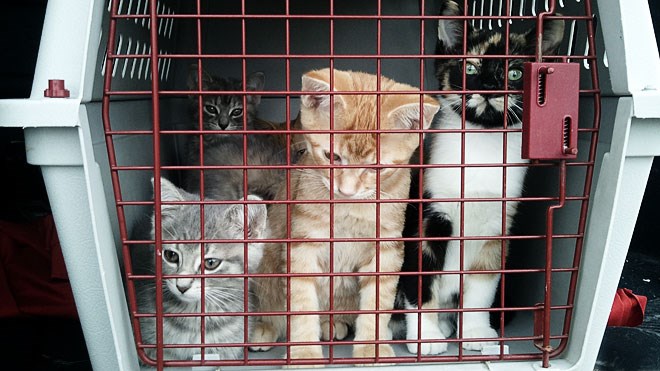City councillors will decide next week whether to extend the pilot animal control program for another two years.
The city took animal control in house in October 2016, taking over from the private operator that had run the system dating back to amalgamation.
City staff said that the city could take the service in house at a cost of $675,000 a year, using its own bylaw enforcement officers and renting space in a shelter on Kari Road in Wahnapitae for $4,500 a month.
A staff report headed to council May 30 recommends extending that agreement for another two years.
“While the current shelter is not ideally located from a citizen convenience and distance perspective, it is highly functional and has excellent outdoor spaces for animals to exercise and continuing to provide the service at this location can easily be supported in the current service delivery model,” the staff report says.
The 2,600-square-foot facility has 15 interior dog runs and 34 individual cat cages. And to house cats during the redemption period, the shelter has five communal cat areas that can each hold five or six cats. City shelter and enforcement staff have had training through Canine Foundations and staff who work at the shelter also spent time in the city-operated Brampton Shelter.
Between October and March, the shelter took in 176 dogs and 275 cats. In total, 164 of the dogs were either returned to their owners or adopted out, four died or were euthanized, two were transferred to the OSPCA and six are still there.
When it comes to the felines, 171 were adopted or returned to their owners, 10 went to the OSPCA, 16 died or were euthanized and 78 are still at the shelter.
Staff have worked diligently to develop and maintain relationships with the animal care community, including foster and adoption groups, the report says. “The city has also developed excellent relationships with three veterinary practices which provide medical support to animals and training to our staff. This ensures that all animals in need of assessment or medical services during their redemption period will be examined by a veterinarian.”
If the pilot project is extended for another two years, staff will prepare a business case for making it permanent in time for the 2019 budget. It would cost between $400,000 and $600,000 to upgrade a city building to house the shelter.
Shelter hours are Mondays to Fridays from 10 a.m. to 4 p.m. and weekends from 10 a.m. to 2 p.m. Visit the city's website for more information.
